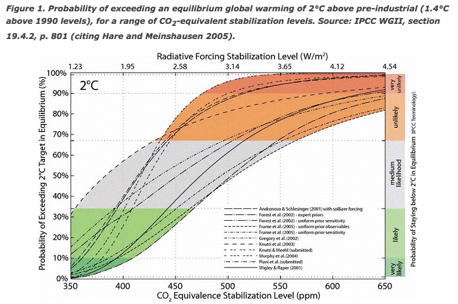|
From humans to climate change and everything in between, everything has a tipping point at some point in time. What exactly is someone or something’s tipping point, though? The tipping point is “the point at which a series of small changes or incidents becomes significant enough to cause a larger, more important change.” (1) In relation to climate change and climatology the tipping point “occurs when the climate system is forced to cross some threshold, triggering a translation to a new state at a rate determined by the climate system itself and faster than the cause, these changes would produce impacts at a rate and intensity far greater than slow and steady changes currently being observed (and in some cases, planned for) in the climate system. These changes would also become irreversible to some point after being triggered.” (2) The idea of the tipping point described by the IPCC is said to be able to cause “major or abrupt climate changes” which could cause substantial disruptions in human and natural systems Specifically, the systems that the IPCC include that would be disrupted are:
The importance of the tipping point and its recent significance as we try to combat climate change has caused a lot of countries to take action in playing a role to prevent us from approaching the threshold. Three weeks ago both China and The United States formally joined the Paris Agreement. The Paris agreement calls for “a global action plan to put the world on track to avoid dangerous climate change by limiting global warming to well below 2°C.”(3) This is momentous since China and the U.S. together are responsible for over 38 percent of global emissions. (4)
Will these recent actions help? This quick entry into applying the Paris Agreement into country policies is very critical because reducing emissions early-on and intensively is one of the most effective methods to preventing catastrophic climate change impacts. 1) Dictionary.com 2) https://climate.dot.gov/about/overview/climate_tipping_points.html 3) http://ec.europa.eu/clima/policies/international/negotiations/paris/index_en.htm 4) http://www.triplepundit.com/2016/09/tipping-balance-u-s-china-ratify-paris-agreement/
0 Comments
Leave a Reply. |
Categories
All
Archives
March 2024
|

 RSS Feed
RSS Feed
